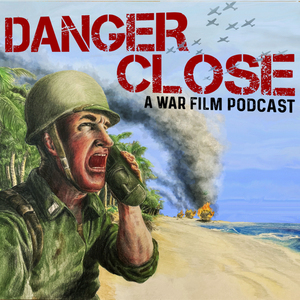Dave Feldmann
Undergrad and unofficial medievalist, current practitioner of Historical European Martial Arts.
Mister Roberts is a movie based on a play that was based on a book called Mister Roberts, written by Thomas Heggen. I’m one of the only people I know who has read it, and my dad owned the book in one of its original printings in 1946. The movie shaves some of the bawdy stuff from the novel but keeps the episodic and comic nature intact.
Both the book and the movie are highly autobiographical. Thomas Heggen performed cargo duty during World War Two in the Caribbean and the Pacific, and frequently butted heads with his commanding officer, Herbert Ezra Randal, a Naval Reservist and former Merchant Marine officer. Like the fictional Mister Roberts, Heggen felt a personal call to participate in the war against fascism, and frequently requested transfers to combat duty, all of which were declined. Out of frustration, Heggen wrote vignettes of his experiences, collected them after the war, and the result was the novel Mister Roberts.
The novel was a literary sensation upon release, selling over a million copies and making Heggen famous, something he was not prepared for ultimately. Divorced following the publishing of his novel, and unable to complete a second book, Heggen descended into alcoholism and drug abuse. He died in 1949, drowning in his bathtub after taking sleeping pills -- friends argued that the death was an accident, whereas the authorities ruled it a possible suicide.
The historical context is incredibly interesting. The Allied war effort required gigantic logistics and supply, and the vast majority of those who served performed logistics duties of one kind or another. Thousands of Liberty ships like the USS Reluctant delivered munitions, troops, food and all other war material to the various theaters of the war. It should be noted that while not glamorous, the obsession with proper supply was one of the key advantages that the Allies had over the Axis. (Half of all Tiger tanks, for example, broke down and were abandoned due to a lack of spare parts.)
In the Pacific theater, the Japanese had conquered a vast territorial area with the intent of forcing the Allies to fight a grueling war of attrition. Japanese soldiers and Marines were ultimately isolated throughout the South Pacific on island strongholds that could not be re-supplied. For the Allies, the common ratio is that ten men would be needed to keep one man fighting in the field. Whereas Allied soldiers, sailors, and Marines faced monotony, boredom, poor food, and little female company, Japanese soldiers were in a far more existential struggle. Starvation and disease followed the Japanese on every front, and even cannibalism was reported in New Guinea and Burma.
So the bored, miserable guys in Liberty ships delivering toilet paper very much won the war.
